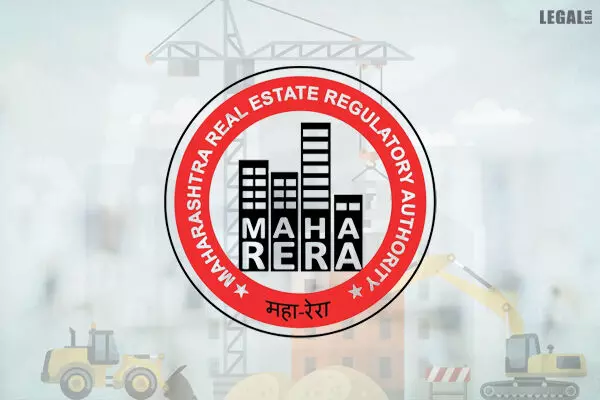- Home
- News
- Articles+
- Aerospace
- AI
- Agriculture
- Alternate Dispute Resolution
- Arbitration & Mediation
- Banking and Finance
- Bankruptcy
- Book Review
- Bribery & Corruption
- Commercial Litigation
- Competition Law
- Conference Reports
- Consumer Products
- Contract
- Corporate Governance
- Corporate Law
- Covid-19
- Cryptocurrency
- Cybersecurity
- Data Protection
- Defence
- Digital Economy
- E-commerce
- Employment Law
- Energy and Natural Resources
- Entertainment and Sports Law
- Environmental Law
- ESG
- FDI
- Food and Beverage
- Gaming
- Health Care
- IBC Diaries
- In Focus
- Inclusion & Diversity
- Insurance Law
- Intellectual Property
- International Law
- IP & Tech Era
- Know the Law
- Labour Laws
- Law & Policy and Regulation
- Litigation
- Litigation Funding
- Manufacturing
- Mergers & Acquisitions
- NFTs
- Privacy
- Private Equity
- Project Finance
- Real Estate
- Risk and Compliance
- Student Corner
- Take On Board
- Tax
- Technology Media and Telecom
- Tributes
- Viewpoint
- Zoom In
- Law Firms
- In-House
- Rankings
- E-Magazine
- Legal Era TV
- Events
- News
- Articles
- Aerospace
- AI
- Agriculture
- Alternate Dispute Resolution
- Arbitration & Mediation
- Banking and Finance
- Bankruptcy
- Book Review
- Bribery & Corruption
- Commercial Litigation
- Competition Law
- Conference Reports
- Consumer Products
- Contract
- Corporate Governance
- Corporate Law
- Covid-19
- Cryptocurrency
- Cybersecurity
- Data Protection
- Defence
- Digital Economy
- E-commerce
- Employment Law
- Energy and Natural Resources
- Entertainment and Sports Law
- Environmental Law
- ESG
- FDI
- Food and Beverage
- Gaming
- Health Care
- IBC Diaries
- In Focus
- Inclusion & Diversity
- Insurance Law
- Intellectual Property
- International Law
- IP & Tech Era
- Know the Law
- Labour Laws
- Law & Policy and Regulation
- Litigation
- Litigation Funding
- Manufacturing
- Mergers & Acquisitions
- NFTs
- Privacy
- Private Equity
- Project Finance
- Real Estate
- Risk and Compliance
- Student Corner
- Take On Board
- Tax
- Technology Media and Telecom
- Tributes
- Viewpoint
- Zoom In
- Law Firms
- In-House
- Rankings
- E-Magazine
- Legal Era TV
- Events
Maharashtra RERA issues notices for real estate projects over non-compliance

Maharashtra RERA issues notices for Real Estate Projects over non-compliance
Developers given 30 days to reply to mandatory disclosures
The Maharashtra Real Estate Regulatory Authority (RERA) has issued notices to realtors for 19,539 projects in the state over non-compliance. Issued within the last 20 days, these relate to the failure of uploading on its website details including financial disclosures, CA certificates, and architect certifications.
While the developers have been given 30 days to respond to the mandatory disclosures, MahaRERA has received replies for 167 projects.
As per the RERA Act, on registering any project in MahaRERA, every three months, the developer is required to update the information given at the time of registration on the website. Based on it, the homebuyers and potential buyers are kept informed about the project status and finances.
An official of MahaRERA stated, "Once the developers update the information, we come to know about the worth of their projects in terms of money. Those who do not complete the compliance can be penalized and the amount will depend on their respective project cost."
According to the RERA Act, every developer is allowed to keep 70 percent amount received from the customers in a separate account as per the registration number. When the amount is withdrawn (at each stage of construction), a certificate from the project engineer, architect, and chartered accountant on the percentage of the project completion, quality, and unrealized cost, must be submitted to the bank.
Additionally, a quarterly inventory of flats and plots sold in the project is to be posted on the website. It is also mandatory for developers to have the project account audited every six months.
However, MahaRERA found that in the case of many projects, these and other conditions were not fulfilled. Thus, it issued notices for violations.
Ever since the existence of MahaRERA in 2017, more than 36,000 projects have been registered with it. Out of these, over 4,500 lapsed while nearly 10,000 projects saw completion.
According to MahaRERA officials, beginning from February 6, investigators will visit at least 40-45 project sites to check if the developers had declared higher costs than they actually incurred on the project.


